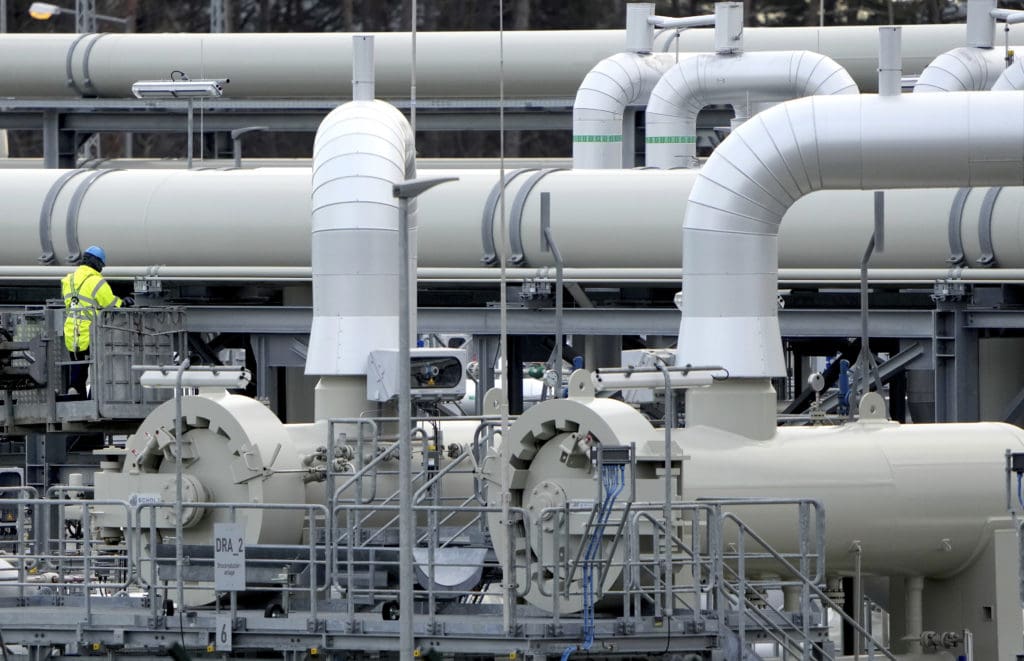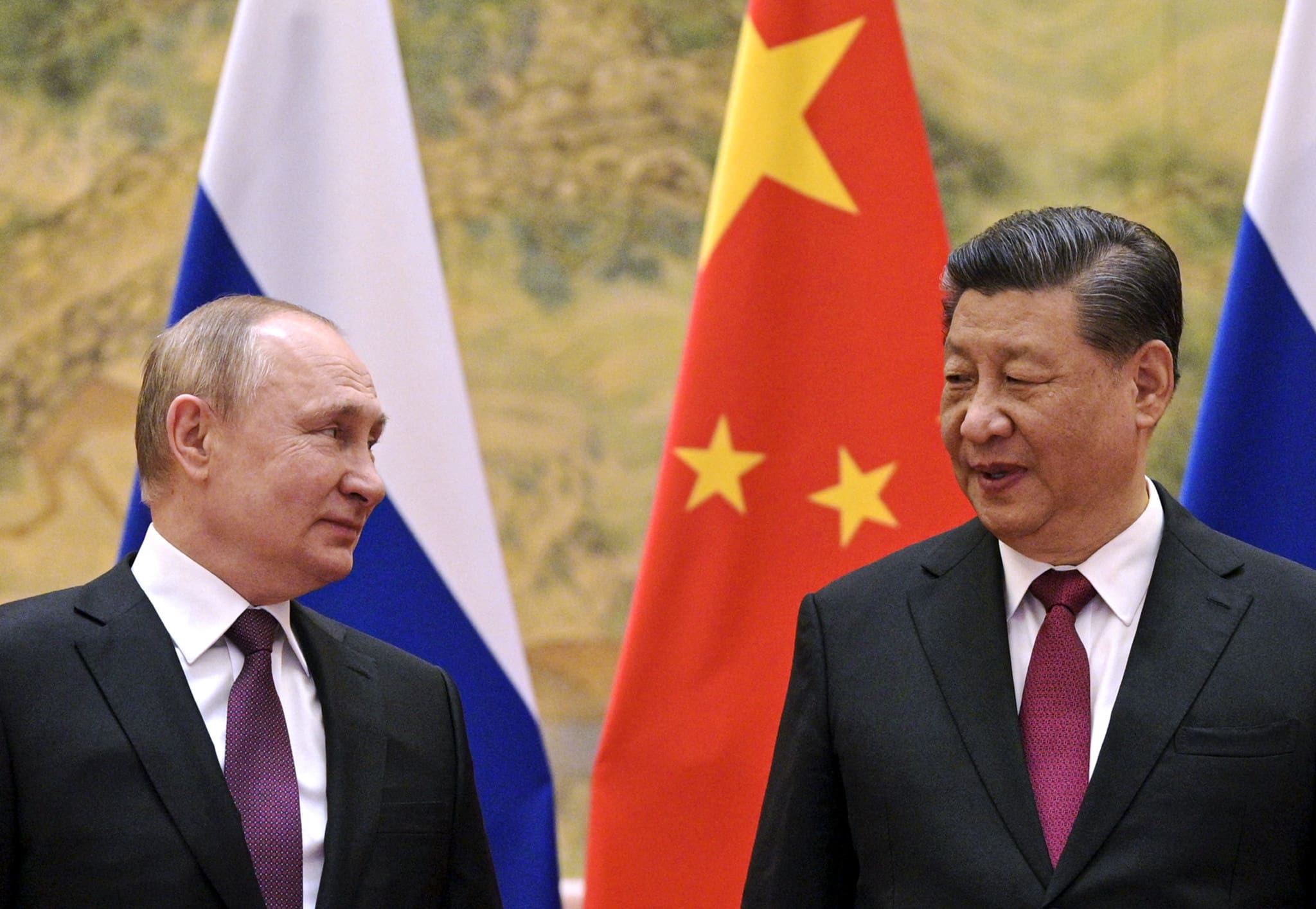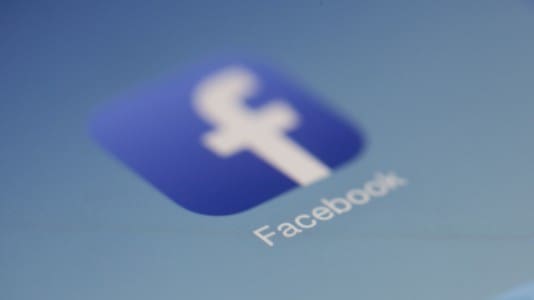That Russian President Vladimir Putin decided to ruthlessly crush his real or perceived enemies by invading Ukraine will surprise few. However, the fact that he decided to do so in a brutal and unlawful manner that would embarrass his very few partners or allies in Europe and the world left analysts baffled.
In Europe, Germany’s soft-and-steady approach to Russia defined by the Merkel era, which sought to slowly forge closer relations with Russia through “Ostpolitik,” was also adopted by Merkel’s successor Olaf Scholz. That whole foreign policy objective unraveled the day Russian shells started raining down on Ukrainian soil. In the U.S. and U.K., conservative politicians who opposed the ideological and economic isolation of Russia were left hung out to dry. In Central and Eastern Europe, those bullied into closer ties with Moscow by an EU drifting towards a pink Marxist utopia, or those holding on to the historic ideals of pan-Slavism, have been forced to re-evaluate their foreign policies overnight or risk the wrath of Western political alliances overwhelmed by a modern day “blitz-spirit.”
[pp id=30557]
There is one notable exception among Russia’s jilted lovers, and that is China. If the New York Times is to be believed, China had some knowledge of Russian plans to invade Ukraine weeks before it actually happened, and even asked Moscow not to invade while the Beijing Olympics were running.
It is unlikely that Putin would have ever hinted at his plans over Ukraine in his dealings with Chinese officials. It is more likely that the Chinese connected the dots just as U.S. intelligence agencies did and knew Putin was about to rewrite the post-World War II order. It is also unlikely that the Kremlin would have taken such a Chinese request into consideration, as the New York Times asserts. The answer is probably more prosaic, namely that Putin did not want his people to see the country’s athletes publicly humiliated and sent packing in front of the world’s eyes.

However, Putin has now nowhere else to turn for political and economic perspectives outside of China, given that the only other countries that voted against the U.N. resolution condemning Russia’s invasion were countries like North Korea and Syria. That means Beijing’s political clout will inevitably rise not only with its dealings with Russia, but also globally. The effectiveness of Western sanctions is, after all, very much dependent on whether Russia can open an emergency valve for its economy towards China, in which case European economies could be the real losers when it comes to sanctions. This is, by the way, a fact that European leaders relishing their “Churchillian moment,” and bowing to public pressure for ever more radical sanctions against Russia, rarely point out.
And so it happened that the ban from the SWIFT banking exchange system, one of the magic wands in the Western public’s eyes that is sure force Putin to his knees, has been weaponized, and how a purely financial tool turned into a geopolitical bomb. The message this sends out is that the Western banking system is in fact subject to Western political strategic interests and Western values, and a precedent has been set in which the system was turned against a country that had gone rogue. However, this was not the case for China’s UnionPay. It is used by 180 countries, and is online in 200. It is a card payment system, not really an alternative to SWIFT, which China is still working on, but Russia’s largest banks, Sberbank, Alfa Bank and Tinkoff Bank, have already announced that they were going to issue cards using the system.
This would be a major boost for the Chinese renminbi-based global trade, and would undermine the monopoly the U.S. dollar currently enjoys in global transactions. It is safe to say that the Chinese will be less picky about who they are going to expel from their system than the moral guardians of the world in Brussels and Washington.
[pp id=30723]
Furthermore, if Russian gas and oil supplies would trickle to a halt in European pipelines, China will be able to negotiate a very good price for Russian energy resources for it own consumers. Clearly that is not great news for Russian producers nor for European consumers facing astronomical bills for their heating and gas, but a win-win situation for Beijing. The Chinese leaders can also be grateful to Putin for forcing Western leaders into revealing their cards when it comes to invading a sovereign democratic nation, a useful demonstration no doubt about what might happen if China ever decided on a similar military adventure in Taiwan.
The strength of the Chinese approach to becoming a global superpower, as opposed to the Western one, was recently described by Hungarian Prime Minister Viktor Orbán in an interview. He explained that Western powers demand anyone wanting to tap into their markets or join their military or political alliances to subscribe to a set of values, however, the Chinese have no such expectations.
Orbán said he believes this is their strength, but no doubt their weakness too. One thing is certain, as long as Beijing stays away from the old Soviet-style ideological communism export, or modern Western-style liberal missionary mindset, it will remain in a good position to be literally the sole beneficiary of Putin’s huge lapse of judgement. The one left to pick up the tab for this will no doubt be the people of Ukraine, and to a lesser extent, European consumers facing unprecedented inflation and economic hardship.




